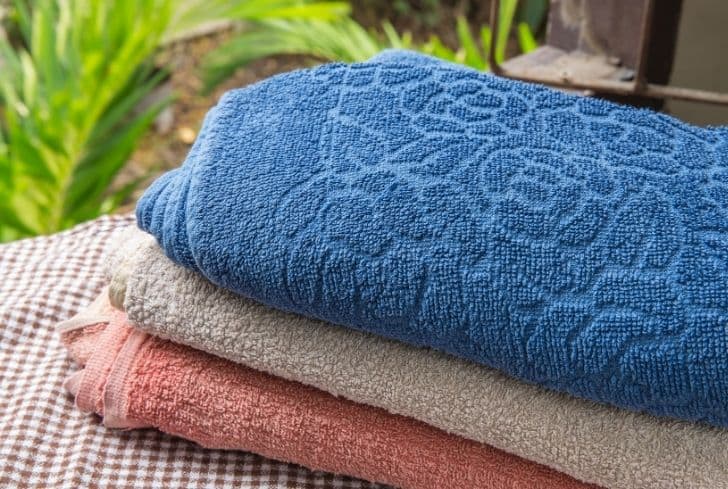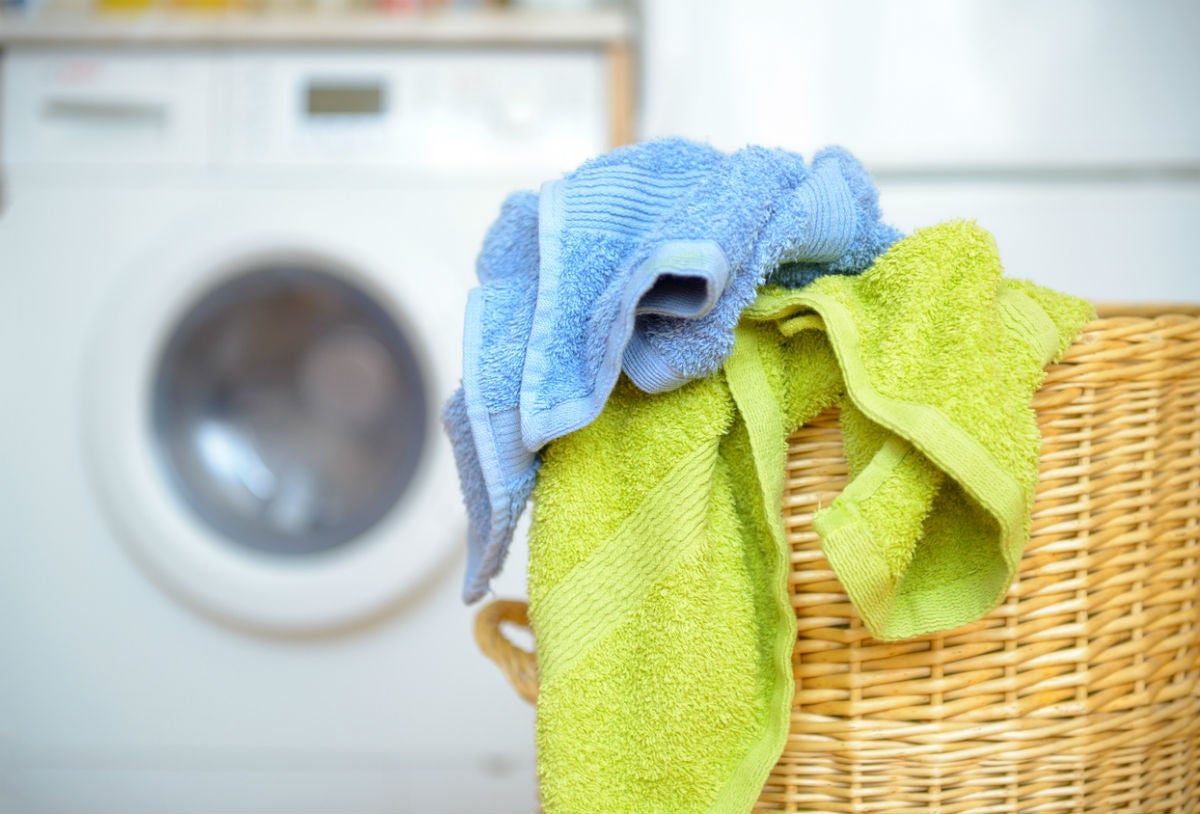
How Often Should You Wash Your Bath Towels? Why It’s Important to Wash Your Bath Towels
Towels are an essential part of our daily hygiene routine, providing us with comfort and cleanliness after a refreshing bath or shower. However, have you ever wondered how often you should wash your bath towels? In this article, we will explore the importance of washing your bath towels regularly, discuss the recommended frequency for washing, explain the proper way to wash and dry your towels, highlight the potential consequences of neglecting towel hygiene, and provide tips on extending the time between washes. Additionally, we will touch upon the recommended washing frequency for other types of towels.
Why It’s Important to Wash Your Bath Towels
Maintaining clean bath towels is crucial for several reasons. First and foremost, towels come into direct contact with our bodies, absorbing moisture, dirt, and dead skin cells. These factors create an ideal environment for the growth of bacteria, mold, and mildew if towels are not washed frequently. Using unwashed towels repeatedly can lead to unpleasant odors and potentially cause skin irritations or infections.
Furthermore, sharing towels with others can increase the risk of spreading germs and illnesses. For instance, if someone in your household has a contagious skin condition or infection, such as athlete’s foot or impetigo, it is essential to wash the towels thoroughly to prevent the transmission of these microorganisms to others.
Regularly washing your bath towels not only helps maintain personal hygiene but also extends their lifespan. Frequent laundering removes built-up residue, such as body oils, lotions, and soap scum, which can make towels feel stiff and less absorbent over time. By keeping your towels clean, soft, and fresh-smelling, you can enhance your bathing experience and ensure optimal drying efficiency.
How Often You Should Wash Your Towels
The recommended frequency for washing bath towels depends on various factors, including personal hygiene habits, towel usage, and the environment in which they are used. As a general guideline, it is advisable to wash your bath towels every three to four uses. This frequency strikes a balance between maintaining cleanliness and avoiding excessive wear and tear from frequent washing.
However, certain situations may call for more frequent washing. For individuals with sensitive skin or allergies, it is beneficial to wash towels after each use to minimize potential irritations caused by residual allergens or chemicals. Similarly, if you have been ill or have used the towel to dry off after a particularly sweaty or dirty activity, it is best to launder the towel promptly.
It’s worth noting that factors like humidity and temperature can affect how quickly bacteria multiply on towels. In hot and humid climates, towels may require more frequent washing due to increased microbial growth. Conversely, in drier and cooler environments, towels may remain fresher for longer periods.
The Right Way to Wash (and Dry) Your Towels

Properly washing and drying your bath towels is crucial to maintain their cleanliness, softness, and absorbency. Follow these steps to ensure optimal care for your towels:
- Sorting: Separate your towels from other laundry items to prevent lint transfer. Consider grouping towels of similar colors together to avoid color bleeding.
- Pre-treating stains: Before washing, treat any visible stains on your towels with a stain remover. Follow the instructions provided by the manufacturer for best results.
- Choosing detergent: Opt for a mild detergent suitable for both colors and whites. Avoid using fabric softeners as they can reduce the towel’s absorbency over time.
- Washing temperature: Set the water temperature according to the care label instructions. Hot water is effective against germs and odor-causing bacteria, but ensure it won’t damage the towel’s fibers. Warm or cold water is generally safe for most towels.
- Load size and agitation: Avoid overcrowding the washing machine to allow enough space for proper cleaning. Use a gentle or delicate cycle to minimize wear on the towels’ fibers.
- Drying method: Preferably, line drying in direct sunlight is an excellent choice for freshening and disinfecting towels naturally. If using a dryer, select a low to medium heat setting to prevent overheating and shrinkage. Add dryer balls or clean tennis balls to reduce drying time and fluffiness.
- Storage: Ensure your towels are fully dry before folding and storing them in a well-ventilated area. This practice helps prevent musty odors and discourages mold or mildew growth.
By following these steps, you can maintain the cleanliness and longevity of your bath towels while enjoying their plushness and absorbency.
What Could Happen if You Don’t Wash Your Towels Twice a Week?
Neglecting to wash your bath towels regularly can have several unpleasant consequences. Here are some potential issues that could arise if you don’t wash your towels at least twice a week:
- Bacterial growth: Moisture, dead skin cellsand other organic matter present on unwashed towels create an ideal breeding ground for bacteria. Over time, these bacteria can multiply and lead to unpleasant odors and potential skin infections.
- Mold and mildew: When towels remain damp for extended periods without being washed, mold and mildew can start to grow. These fungi not only produce musty smells but can also pose health risks, especially for individuals with respiratory conditions or allergies.
- Skin irritation and breakouts: Using dirty towels can transfer bacteria, oils, and other impurities onto your skin. This can clog pores and potentially result in acne breakouts or skin irritations, undermining your efforts to keep your skin clean and healthy.
- Spread of illnesses: Sharing towels with others, especially when someone is sick, increases the risk of transmitting germs and pathogens. Common infections such as colds, flu, and even more serious conditions like staph infections or fungal infections can be easily spread through contaminated towels.
- Reduced absorbency: Over time, unwashed towels accumulate residue from body oils, lotions, and detergent build-up, which can make them less absorbent. This can affect their ability to dry you effectively after a bath or shower, leaving you feeling damp and uncomfortable.
To avoid these potential issues, it’s essential to establish a regular towel washing routine that ensures cleanliness and hygiene.
How to Stretch the Time Between Washing Your Towels
While it’s important to maintain proper towel hygiene, there are some practical strategies you can employ to extend the time between washing cycles without compromising cleanliness. Consider the following tips:
- Hang towels properly: After each use, hang your towel in a well-ventilated area where it can fully air dry. This helps prevent moisture retention and reduces the risk of bacterial growth.
- Use towel hooks or bars: Instead of folding your towel over a rod or hook, use hooks or bars that allow the towel to hang flat. This method promotes faster drying and minimizes the chances of dampness.
- Rotate towels: If multiple people in your household use the same towel, consider rotating them so each towel has ample time to dry thoroughly between uses. This reduces moisture accumulation and extends freshness.
- Consider towel materials: Towels made from certain materials, such as bamboo or microfiber, can have natural antimicrobial properties or faster drying times. Investing in these types of towels may allow for longer intervals between washes.
- Spot clean when necessary: If you notice a small stain or localized dirt on your towel, spot cleaning with mild soap and water can suffice instead of washing the entire towel. However, remember to wash the towel promptly if it has been used by someone who is ill or if there are hygiene concerns.
Remember, while these strategies can help stretch the time between washes, regular laundering is still essential for maintaining optimal cleanliness and hygiene.
How Often to Wash Other Types of Towels
In addition to bath towels, there are other types of towels we use in our daily lives that require regular washing. Here are some guidelines for how often to wash different types of towels:
- Hand towels: Hand towels, which are frequently used and come into contact with multiple hands, should ideally be washed every two to three days. In high-traffic areas or during flu seasons, more frequent washing may be necessary.
- Kitchen towels: Kitchen towels are exposed to food particles, grease, and potential cross-contamination, making them prone to bacterial growth. It is recommended to wash kitchen towels every couple of days or after any particularly messy cooking session.
- Gym and workout towels: Since gym towels come into contact with sweat and often remain damp for extended periods, they should be washed after each use to prevent the growth of bacteria and unpleasant odors.
- Beach towels: Beach towels accumulate sand, sunscreen, and other outdoor elements. It is advisable to wash them after every use to remove dirt and ensure they are fresh for your next beach excursion.
- Guest towels: Guest towels, which may be used less frequently, should still be washed after each guest’s visit or at least once every week to maintain cleanliness and hygiene standards.
By following these recommended washing frequencies for different types of towels, you can ensure that you and your family enjoy clean and fresh towel experiences in all areas of your daily life.
Conclusion
The cleanliness and hygiene of our bath towels play a significant role in our overall well-being. Regularly washing your bath towels not only helps prevent the growth of bacteria, mold, and mildew but also ensures optimal freshness, absorbency, and comfort. By adhering to a proper towel washing routine and following the recommended guidelines for different types of towels, you can maintain cleanliness, extend their lifespan, and promote good personal hygiene practices.
Remember, while the recommended frequency for washing bath towels is generally every three to four uses, factors such as personal hygienehabits, towel usage, and environmental conditions can influence the ideal washing frequency. It is essential to assess your own needs and adjust accordingly.
Through proper sorting, pre-treating stains, selecting the right detergent and washing temperature, and employing appropriate drying methods, you can ensure that your towels are cleaned effectively while preserving their softness and absorbency. Additionally, taking steps to prevent moisture retention, such as hanging towels properly and using towel hooks or bars, can help stretch the time between washes.
Neglecting to wash your bath towels regularly can lead to bacterial growth, mold and mildew formation, skin irritations, the spread of illnesses, and reduced absorbency. To avoid these potential issues, it is crucial to establish a consistent towel washing routine and prioritize cleanliness and hygiene.
Remember that other types of towels, such as hand towels, kitchen towels, gym towels, beach towels, and guest towels, also require regular washing based on their specific usage and exposure to dirt, sweat, or contaminants.
By understanding the importance of washing your bath towels and implementing proper care practices, you can enjoy clean, fresh, and hygienic towels that contribute to your overall well-being and comfort.
















